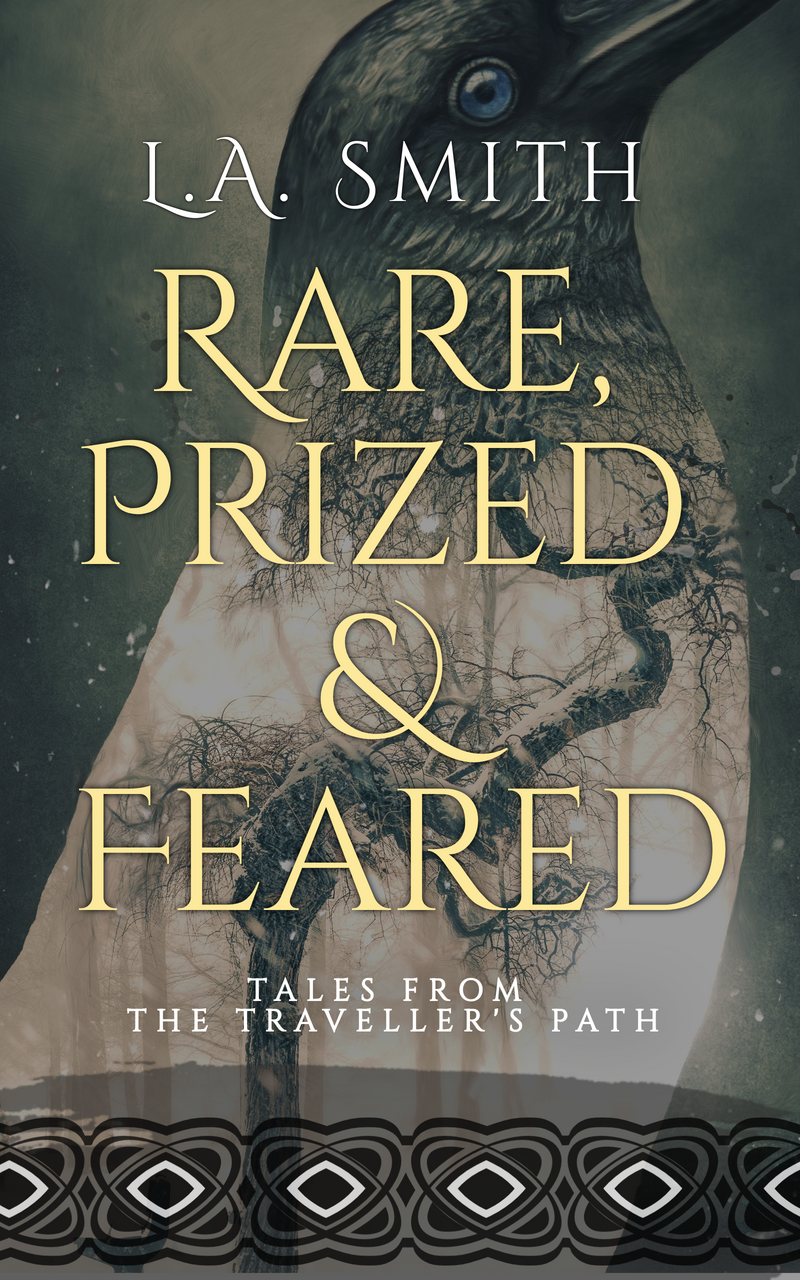
Newsletter
Yes! Send me my FREE short story collection and sign me up for those exclusive subscriber goodies!
We value your privacy, and will never spam you! View our privacy policy at lasmithwriter.com/privacy

Yes! Send me my FREE short story collection and sign me up for those exclusive subscriber goodies!
We value your privacy, and will never spam you! View our privacy policy at lasmithwriter.com/privacy
If you have followed me on the blog for any length of time, you will have realized by now that I love to read, and that I love to read all sorts of books. Fantasy is probably my first love, but I really, really enjoy pretty much all genres, as well as nonfiction.
Recently, I read The Calculating Stars, by Mary Robinette Kowal, and soon as I finished I knew I had to review it here on the blog. It’s such a good book, and even though it is more of a science fiction book than it is a fantasy, there are certain similarities between it and my books that I thought you might enjoy it, too.
What a great cover, no?
I first became acquainted with the author, Mary Robinette Kowal, through her appearance on the Writing Excuses podcast. I always enjoy her perspectives on that podcast and was intrigued by the book she had published previous to joining the cast. Her debut novel, Shades of Milk and Honey, was billed as “Jane Austen with magic”, and that was pretty much an irresistible hook for me. She wrote several other books in that Glamourist History series, as well as numerous short stories, picking up much acclaim along the way, including a Hugo Award for a short story, “For Want of a Nail”.
The Calculating Stars (published in 2018) is the first book in a new series called The Lady Astronauts. I am not alone in thinking this is a great book, it won the Hugo, Nebula, and Locus Awards in that year, one of few books to win all three of those awards. Kowal is no slouch as a writer, that’s for sure. Her books include intriguing characters, fascinating concepts, and, often, some type of alternate history or historical fantasy element.
That’s why I think those of you who enjoy my books might like hers, too, although The Calculating Stars covers a very different time period than my own Dark Ages books. It opens in 1952 and introduces us to Elma York, a former WASP pilot during WW II and a brilliant mathematician. She works alongside her husband Nathaniel at the National Advisory Committee for Aeronautics (the precursor to NASA), aiding in their efforts to get mankind to the moon. The book begins with a bang, literally, when a meteor hits near Washington DC, igniting what Elma quickly realizes is an extinction event: the climate change ramifications from the meteor strike will make the Earth uninhabitable for humans within a few decades.
This realization ignites the race to the moon into overdrive, and the bulk of the book is the story of how Elma puts her skills to use in the International Aerospace Coalition, the organization formed after the meteor strike to coordinate an international effort to get mankind into space.
But this is not dry science fiction. Elma is a relatable, interesting character with a passion for math and a burning desire to go to the moon. But, of course, this is the 1950s, and that particular mission is deemed too dangerous for the “fairer sex”. Undaunted, Elma begins to gather like-minded women pilots around her who she feels would be ideal candidates for becoming astronauts, and the book explores her quest to get a woman into space.
Along the way she encounters the dismissive attitudes of those who don’t think women could handle the stress of the mission along with those who simply are dismissive of her considerable talents both as a mathematician and a pilot. She also confronts racism, both in herself as well as in society’s attitudes as a whole. Although this is an alternate history, it still shows the real-life experiences of how women and people of colour were treated at the time.
This is a terrific story, with lots of ups and downs and intriguing elements. Elma is a fully realized character, with relatable strengths and weaknesses, and it’s so fascinating to watch her journey as not only she evolves, but as she carves out a spot for women in space.
I particularly want to highlight three aspects of the book that I really appreciated:
If you want a well-written, historically interesting, fun, and fascinating book, you will enjoy The Calculating Stars. I’m really looking forward to reading Book Two in The Lady Astronaut series, The Fated Sky.
Have you read The Calculating Stars? What did you think? I would love to hear your thoughts! Reply in the comments below!